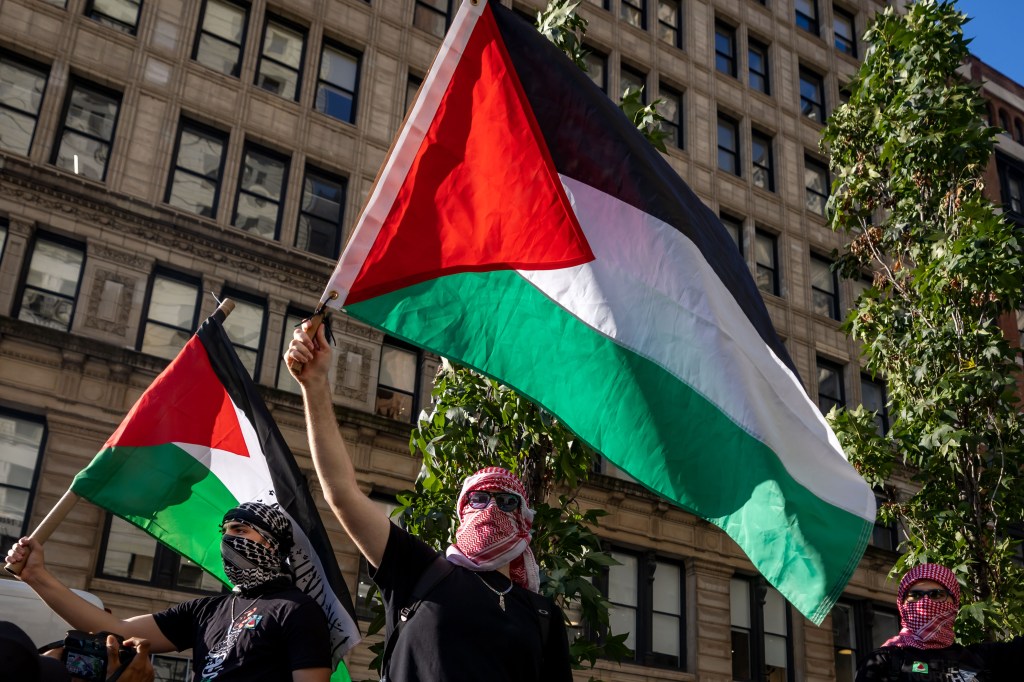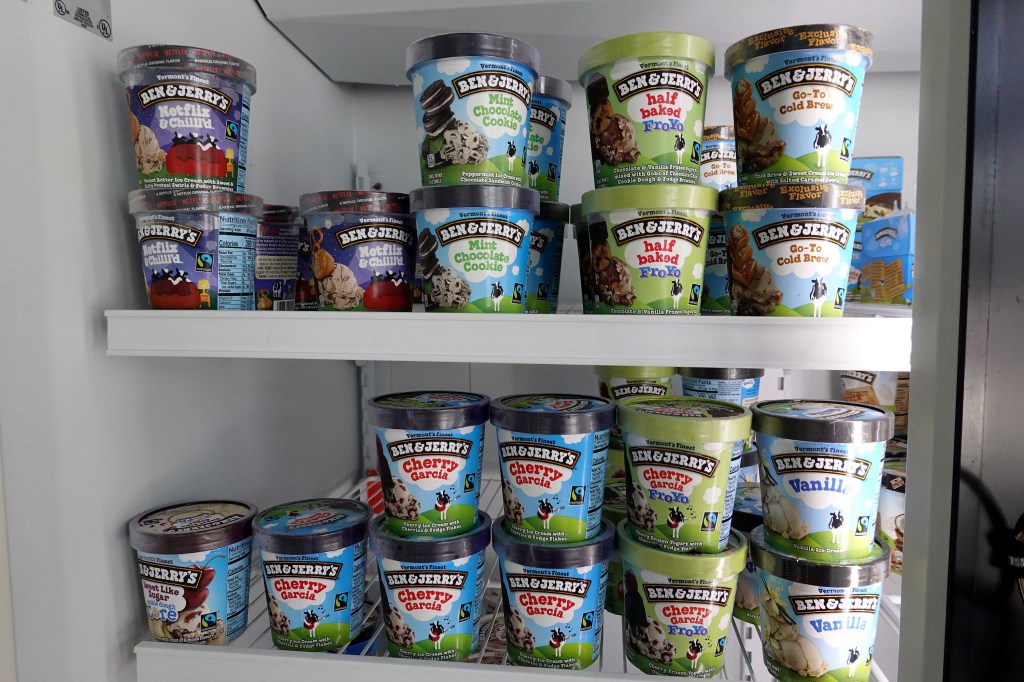Ben & Jerry’s sues Unilever for ‘silencing’ their pro-Palestinian support
Ice cream brand Ben & Jerry’s said in a lawsuit filed Wednesday that parent company Unilever has silenced its attempts to express support for Palestinian refugees and threatened to dismantle its board and sue its members over the issue.
The lawsuit is the latest sign of the long-simmering tensions between Ben & Jerry’s and consumer products maker Unilever, which is planning to spin out its ice cream business next year.
The spin out would include the top-selling Vermont-based maker of Chubby Hubby, although experts on corporate governance said the brand’s board, a centerpiece of the new lawsuit, could present challenges to the deal.
A rift erupted between the two in 2021 after Ben & Jerry’s said it would stop selling its products in the Israeli-occupied West Bank because it was inconsistent with its values, a move that led some investors to divest Unilever shares.
The ice cream maker then sued Unilever for selling its business in Israel to its licensee there, which allowed marketing in the West Bank and Israel to continue. That lawsuit was settled in 2022.
In its new lawsuit, Ben & Jerry’s says that Unilever has breached the terms of the 2022 settlement, which has remained confidential. As part of the agreement, however, Unilever is required to “respect and acknowledge the Ben & Jerry’s independent board’s primary responsibility over Ben & Jerry’s social mission,” according to the lawsuit.
But, according to the lawsuit, “Ben & Jerry’s has on four occasions attempted to publicly speak out in support of peace and human rights. Unilever has silenced each of these efforts.”
In response to Reuters’ story, Unilever said in an emailed statement: “Our heart goes out to all victims of the tragic events in the Middle East. We reject the claims made by B&J’s social mission board, and we will defend our case very strongly.”
“We would not comment further on this legal matter,” it added.
The lawsuit was filed in New York federal court.
Minor Myers, a professor at the University of Connecticut School of Law, said the tension between Ben & Jerry’s and Unilever would be top of mind in a deal, particularly if Unilever’s ice cream brands are acquired by a private equity firm or competitor company.
“The Ben & Jerry’s situation, would be front of mind of any possible buyer,” Myers said. “To the extent that Ben & Jerry’s or a subsidiary wants to be liberated to say (what they want, it) may impact the sales of the flagship ice cream brand.”
That would result in a lower valuation for Unilever’s ice cream brands, Myers said. There are fewer concerns if the ice cream brands become a separate publicly traded company, Myers said.
Ben & Jerry’s said in the lawsuit it has tried to call for a ceasefire, support the safe passage of Palestinian refugees to Britain, back students protesting at US colleges against civilian deaths in Gaza, and advocate for a halt in US military aid to Israel, but has been blocked by Unilever.
The independent board separately spoke out on some of those topics, but the company was muzzled, the lawsuit says.
Ben & Jerry’s said that Peter ter Kulve, Unilever’s head of ice cream, said he was concerned about the “continued perception of anti-Semitism” regarding the ice cream brand voicing its opinions on Gazan refugees, according to the lawsuit.
Unilever was also required under the settlement agreement to make a total of $5 million in payments to Ben & Jerry’s for the brand to make donations to human rights groups of its choosing, according to the lawsuit.
Ben & Jerry’s selected the left-leaning Jewish Voice for Peace and the San Francisco Bay Area Chapter of the Council on American-Islamic Relations, among others, the filing says.
Unilever in August objected to the selections, saying that Jewish Voice for Peace was “too critical of the Israeli government,” according to the lawsuit.
Ben & Jerry’s has positioned itself as socially conscious since Ben Cohen and Jerry Greenfield founded the company in a renovated gas station in 1978. It kept that mission after Unilever acquired it in 2000.
Unilever’s dozens of products include Dove soap, Hellmann’s mayonnaise, Knorr bouillon cubes, Surf detergent and Vaseline petroleum jelly.





